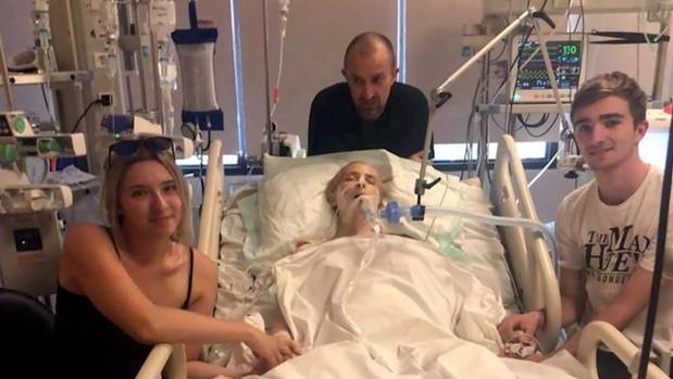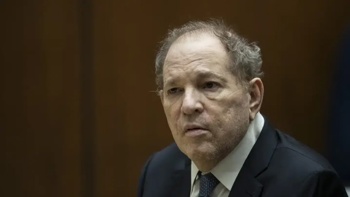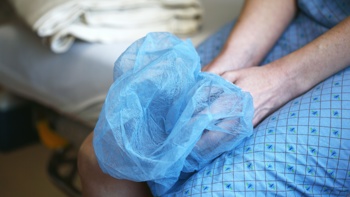
The death of Kiwi woman Abby Hartley in Bali earlier this month was a confronting reminder that falling seriously ill overseas inflicts a heavy financial burden on loved ones over and above the emotional toll.
With the Hartley's travel insurance refusing to front up for hospital bills due to an undisclosed pre-existing condition, the New Zealand Government was asked for assistance, and refused.
But the Hamilton family's request for the government to intervene in medical costs overseas is not unique.
/arc-anglerfish-syd-prod-nzme.s3.amazonaws.com/public/DCT26UYXYFC4ZAC7KZOKYO5ZPY.jpg)
Since 2009 there have been 1643 Kiwis who've made a medical request for assistance overseas to the government.
One notoriously volatile yet beautiful Southeast Asian country looms large over all others in global numbers: Thailand.
Since 2009, there has been 150 requests from Kiwis travelling in Thailand for medical assistance from the New Zealand Government.
The next highest is Australia, with 117 requests, but our trans-Tasman neighbour had 9,528,348 visitors in that time, dwarfing Thailand's 352,797 total visitors.
Southeast Asian countries feature prominently on the list - with five of the top 20.
The Ministry of Foreign Affairs data obtained via Official Information come two weeks after the Herald on Sunday revealed a Kiwi woman's drink spiking and attempted abduction in Phuket in 2016.
The woman in her early 30s, along with her fiancé's sister, was pulled unconscious from a taxi by her cousin after drinking at a bar on Thailand's largest island with "suspicious Russians".
She believes she could have been the victim of attempted human trafficking:
"I've been reading these books about trafficking recently and how it's so easy and I always think, God, anyone could just pull up now and no one would know. It's still very unreal."
Darcy Peacock is an Auckland based travel guide, who spent a year living in Thailand, and six years in total throughout Asia.
He says there is "absolutely" a lot of reckless, drug and alcohol-fueled behaviour involving tourists in Thailand.
"Usually the places that are the worst are the islands," Peacock said.
"You get people who get down there, often 18-years-olds.
"The roads aren't great, they've got motorcycles without a license, no one's really policing them, the sheer amounts of tourists.
"The sheer amount of alcohol, and people make stupid decisions, they're away from their own country and they get hurt, and sadly lots of people go over there without insurance."
On their official Safe Travel website, the government too warns of the dangers of the country 51,000 Kiwis have listed as their main holiday destination in the year to June 30.
/arc-anglerfish-syd-prod-nzme.s3.amazonaws.com/public/YQDYFNIVQVFHDNDTWKFDC2FV2Q.jpg)
A blatant 'do not travel' warning is enforced for several southern provinces of Thailand due to "ongoing politically-motivated and criminal violence, which occurs on an almost daily basis".
There is also an 'exercise increased caution' warning for the rest of Thailand, due to their unpredictable political system, civil unrest, ongoing terrorism threat, and drug related sexual assaults through drink spiking.
Unsurprisingly, given the number of Kiwis getting into medical strife in Thailand over the last decade it's also insisted:
"New Zealanders travelling or living in Thailand should have a comprehensive travel insurance policy in place that includes provision for medical evacuation by air."
But what the Hartley's sad case also highlighted was the conundrum of buying travel insurance with pre-existing medical conditions.
Prime Minister Jacinda Ardern urged Cover More Travel Insurance to stump up and pay the $170,000 to medivac Abby back home from Bali after she was left in a coma from septicaemia contracted during emergency bowel surgery.
"Ultimately, what we hope is in these cases that insurers really step in and assist families when they have situations like this", Ardern said.
But Cover More Travel Insurance did not, because Hartley had not disclosed a pre-existing condition.
Insurance Council of NZ chief executive Tim Grafton said there's a range of pre-existing conditions most travel insurers will cover, and then others which a negotiation will be entered into, considering the countries visited.
"There will be a need if you do have an existing condition to tell your insurer and have that conversation," Grafton said.
"It doesn't mean you won't be insured, but possibly it may do, and if an insurer doesn't want to take on that risk, you probably want to seriously reflect on whether or not you should be travelling."
Take your Radio, Podcasts and Music with you









